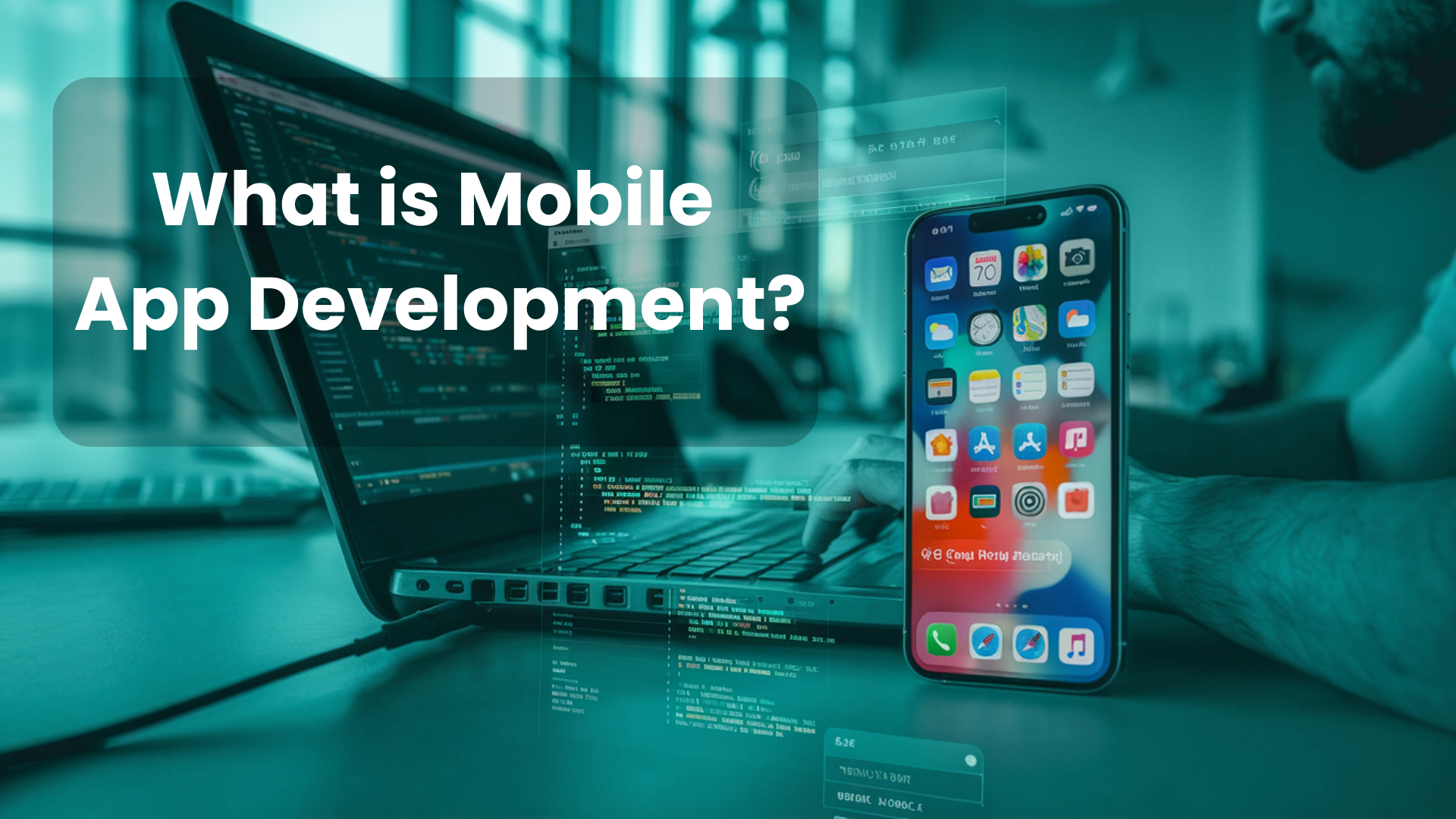What is Mobile App Development?
By Pawan | 2/4/2025 5:15:03 PM

What is Mobile Application Development?
Mobile application development is the process of designing, building, and maintaining software applications that run on mobile devices such as smartphones and tablets. With the increasing use of mobile devices, businesses and individuals are leveraging mobile apps to enhance user experience, increase engagement, and drive revenue.
1. Introduction to Mobile Application Development
Mobile app development involves creating software applications that are specifically designed for mobile platforms like Android and iOS. These applications can serve various purposes, from entertainment and productivity to e-commerce and social networking.
2. Types of Mobile Applications
Mobile applications are categorized based on their development approach and functionality. The main types include:
a. Native Apps
These are built specifically for a single platform (Android or iOS) using platform-specific languages such as Java/Kotlin for Android and Swift/Objective-C for iOS. They offer high performance and seamless integration with device features.
b. Web Apps
Web applications run through web browsers and do not require installation. They are developed using web technologies like HTML, CSS, and JavaScript and are accessible across different devices.
c. Hybrid Apps
Hybrid applications combine elements of both native and web apps. They are developed using frameworks like Flutter, React Native, or MAUI, allowing a single codebase to run on multiple platforms.
3. Popular Mobile Platforms
a. Android
Developed by Google, Android is an open-source platform that supports a wide range of devices. Apps for Android are developed using Java, Kotlin, or Dart (Flutter).
b. iOS
Developed by Apple, iOS is a closed ecosystem known for its security and smooth user experience. iOS apps are built using Swift and Objective-C.
4. Mobile App Development Process
a. Ideation & Planning
This phase involves brainstorming the app idea, identifying target users, and defining the app’s features and functionalities.
b. UI/UX Design
A well-designed user interface (UI) and user experience (UX) are crucial for engagement. This stage involves wireframing, prototyping, and designing the app’s layout.
c. Development
The actual coding and programming take place in this phase. Developers use programming languages and frameworks to implement the app’s features.
d. Testing & Debugging
Testing ensures that the app is free of bugs, performs well, and meets user expectations. Various tests such as unit testing, UI testing, and performance testing are conducted.
e. Deployment & Maintenance
Once the app is ready, it is deployed to app stores like Google Play and the Apple App Store. Continuous maintenance and updates are required to fix bugs and improve performance.
5. Programming Languages & Frameworks
Different programming languages and frameworks are used based on the app’s platform and type:
- Android: Java, Kotlin, Dart (Flutter)
- iOS: Swift, Objective-C
- Cross-Platform: Flutter, React Native, MAUI
6. Mobile App Development Tools & IDEs
- Android Studio (for Android development)
- Xcode (for iOS development)
- Visual Studio (for cross-platform development with .NET MAUI)
- React Native & Flutter IDEs (for hybrid development)
7. Backend Services for Mobile Apps
Backend services play a crucial role in providing functionality to mobile applications:
- APIs: Enable communication between the app and servers
- Cloud Integration: Services like Firebase, AWS, and Azure provide cloud-based solutions
- Database Management: Databases such as MySQL, Firebase, and MongoDB store app data
8. Security in Mobile Applications
Security is a major concern in mobile app development. Some key security measures include:
- Data Encryption: Protects sensitive user information
- Authentication & Authorization: Ensures only authorized users access the app
- Regular Security Updates: Fix vulnerabilities and enhance app security
9. Monetization Strategies
Developers and businesses can generate revenue from mobile applications through various monetization models:
- Advertisements: Displaying ads within the app
- In-App Purchases: Offering premium features or content
- Subscription Models: Charging users a recurring fee for access
10. Future Trends in Mobile App Development
a. AI & ML Integration
Artificial Intelligence (AI) and Machine Learning (ML) enhance app capabilities by providing features like voice recognition, personalized recommendations, and chatbots.
b. Augmented Reality (AR) & Virtual Reality (VR)
AR and VR technologies are transforming industries such as gaming, e-commerce, and education.
c. 5G & Edge Computing
The rollout of 5G networks will enable faster app performance, real-time processing, and improved connectivity.
Conclusion
Mobile application development is a dynamic field that requires technical expertise, creativity, and continuous learning. Whether developing native, web, or hybrid apps, understanding the process, tools, and future trends is essential for success in the mobile app industry.

